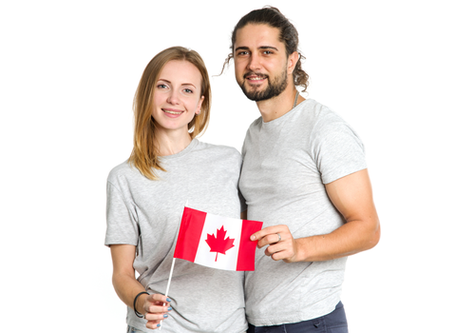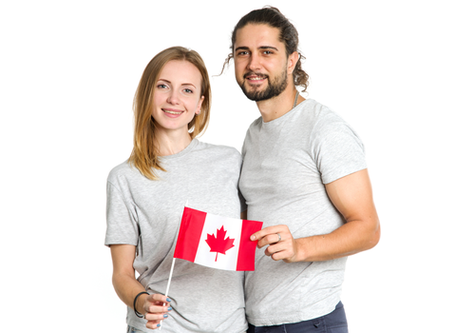


Bringing your spouse or partner to Canada is a significant step towards family reunification, an essential aspect of Canada's immigration policy. After economic immigration, family-class pathways represent the second most favoured route for immigrating to Canada. Family-class immigration covers various relationships, such as spouses, common-law partners, children, and parents.
Statistics from the 2023 Annual Report to Parliament on Immigration by Immigration, Refugees and Citizenship Canada (IRCC) underscore the significance of spousal sponsorship in Canada's immigration landscape. Despite fluctuations due to external factors like the COVID-19 pandemic, the number of sponsored spouses and partners admitted to Canada has steadily increased. Between 2018 and 2022, the number of sponsored spouses, partners, and children admitted to Canada increased consistently, growing from 67,140 to 70,076. However, the processing duration increased from 13 months in 2019 to 18 months in 2022, posing challenges for couples seeking to reunite in Canada.
In this article, we delve into the strategies and processes involved in bringing your spouse or partner to Canada seamlessly.
IRCC aims to process most applications within service standards and set timeframes. These standards vary depending on the type of application, with Express Entry applications typically having a service standard of six months and family class sponsorship applications for permanent residence taking up to 12 months.
However, such waiting periods can be lengthy for Canadian citizens and permanent residents eager to reunite with their families. Consequently, many seek expedited options to bring their spouse or partner to Canada. IRCC offers two alternatives for those applicants that could accelerate the family reunification process.
The Spousal Open Work Permit (SOWP) presents an avenue for spouses, common-law partners, and conjugal partners sponsored for permanent residence in Canada.
Eligibility criteria
Applicants must fulfill specific eligibility criteria to obtain a Visitor Visa, also called a Temporary Resident Visa (TRV).
Eligibility Criteria
IRCC maintains a service standard of 14 days for processing new visitor visa applications submitted outside Canada. Additionally, some applicants may require a medical exam and/or a Canadian resident's letter of invitation.
When visiting a spouse or partner who sponsored their permanent residence, individuals may need to provide specific documents as per IRCC's guidelines. Here are the additional documents required:
It is important to note that not all listed documents may be mandatory, as some are optional. According to IRCC, submission of all documents does not guarantee application approval.
Upon approval of a visitor visa, spouses or partners can apply for an open work permit (OWP) upon their arrival in Canada. This means a sponsored spouse or partner could arrive and become eligible to work in Canada within approximately three months of their initial visitor visa application. However, it's important to note that IRCC's service standards may only sometimes be met, and the process could take longer than anticipated.
Several key points must be considered when pursuing an Open Work Permit (OWP) or a Visitor Visa,. These options are exclusively available to spouses or partners of Canadian citizens or permanent residents after submitting a PR application for spousal sponsorship.
Furthermore, applicants must have received an Acknowledgement of Receipt (AOR) confirming the application's processing status before considering either option. At this stage, applicants may benefit from expedited visitor visa processing.
According to IRCC, spousal sponsorship applicants eligible for a visitor visa after receiving their AOR will automatically receive expedited processing on their application.
IRCC introduced new measures in May 2023 aimed at fortifying family-class immigration and promoting family reunification efforts across Canada.
These initiatives mark a significant step towards enhancing family-class immigration and promoting more vital family reunification efforts in Canada.
Family class sponsorship is a significant component of Canada's immigration strategy, ranking as the second largest category in the Immigration Levels Plan.
Canada aims to welcome 118,000 newcomers through family-class immigration by 2025. This sponsorship program enables Canadian citizens and permanent residents to sponsor individuals to join them in Canada and obtain PR. Eligible individuals for sponsorship include spouses, common-law and conjugal partners, children, parents, and grandparents, provided they meet the necessary eligibility criteria.
ImmiLaw Global has a dedicated team of immigration lawyers and overseas study consultants capable of assisting you with your tailored needs. Connect with us to guide you through the intricacies of the spousal sponsorship process and to bring your partner to Canada to embark on a brighter future in Canada.
Read To Know: Provincial Attestation Letter For A Study Permit To Canada